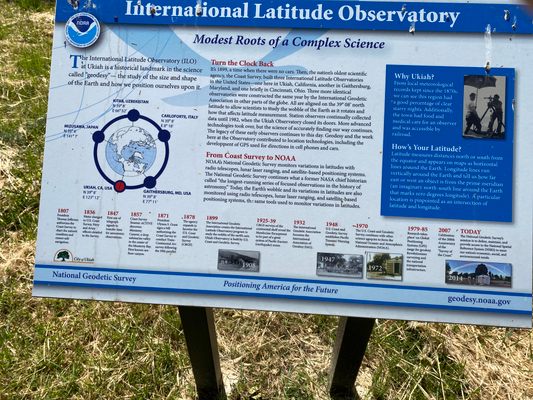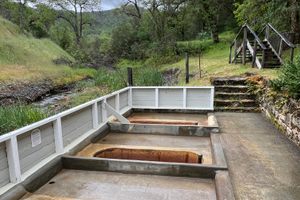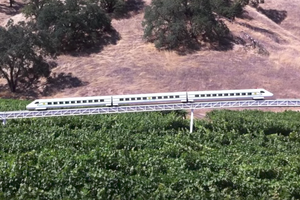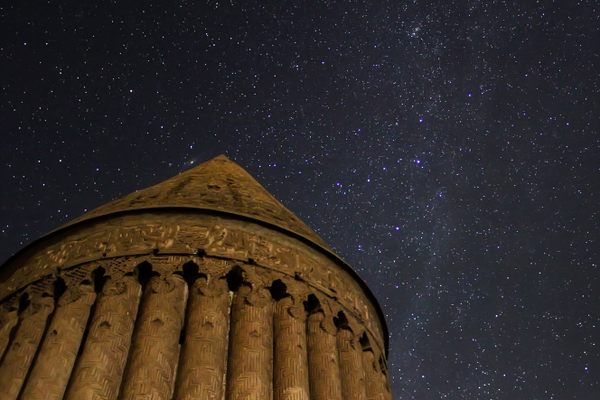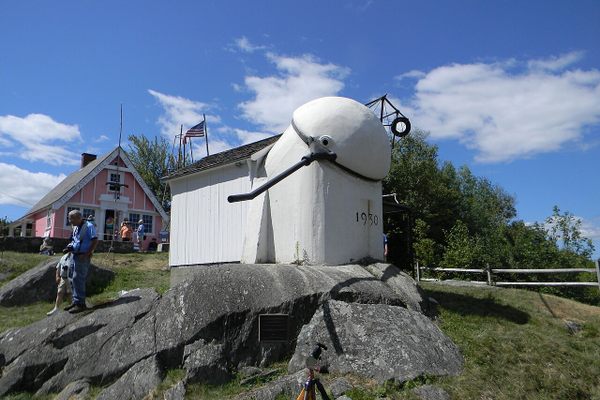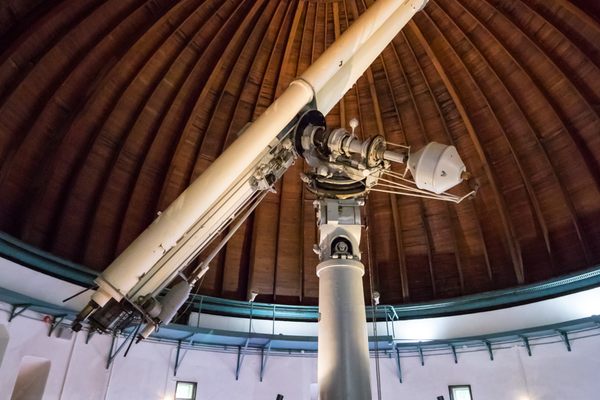About
In 1897, six International Latitude Observatories were built to measure the "wobble" of the Earth on its polar axis. The observatories were positioned around the world, all on the parallel of 39 degrees, 8 minutes north latitude. This small white building in Ukiah, California, is one of only five left.
The Earth does not rotate on a perfect axis. Instead, the spin axis drifts or “wobbles” slightly around the poles, like the wobble of a spinning top. This slight deviation, called polar motion, thus changes the direction of true north and throws off latitude measurements all over the surface of the planet.
At the end of the 19th century, a United States Coast and Geodetic Survey and International Polar Motion Service program built stations in Gaithersburg, Maryland; Cincinnati, Ohio; Mizusawa, Japan; Kitab, Uzbekistan (formerly Charjui, Turkestan); and Carloforte, Italy to gather precise measurements of the stars over time and determine the extent of the polar motion. Since observations began, the farthest the Earth has “wobbled” is about 37 feet, drifting toward North America. The Cincinnati station closed in 1916 due to economic hardship, leaving just five remaining. And these five all became obsolete in the 1980s, with advances in satellite observation and computer technology, but not before collecting scores of valuable data. The Ukiah Latitude Observatory closed in 1982 and was later handed over to the city. The scientific landmark was restored and reopened as a historic park in 2014.
Related Tags
Know Before You Go
Ukiah Observatory Park is open daily from 7 a.m. to 7 p.m. Reservations are required for special events or tours. The city hosts free shows once or twice a year; you can find the full schedule on the website.
Community Contributors
Added By
Published
October 15, 2018



